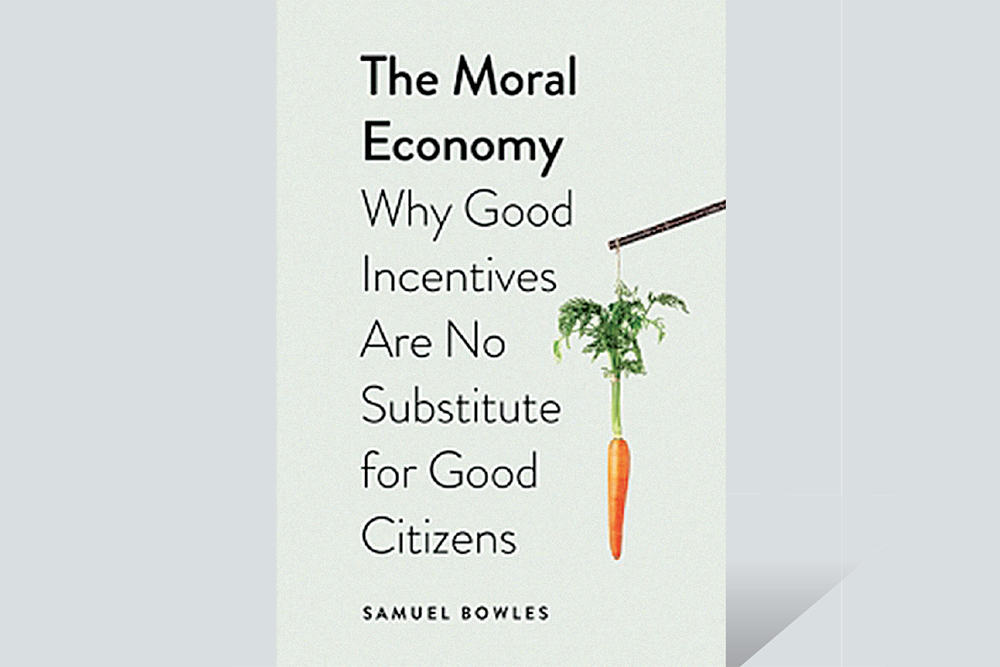Incentives and other aspects of economic organization affect the evolution of preferences because they influence both the types of people one encounters and the set of behaviors that are feasible and rewarding, given the kinds of tasks that people undertake.The extensive use of incentives — say, a subsidy given to those who contribute to a public good—may impede the learning of prosocial preferences because of two uncontroversial aspects of the process of cultural evolution. First, people tend to adopt ways of behaving (including the preferences that motivate them) that they perceive to be common, independently of expected material payoffs of these behaviors. Second, the presence of incentives may lead people to interpret some generous and other-regarding acts as instead being expressions of self-interest induced by the subsidy.
The conformist element in cultural transmission (adoption of the behaviors that most others are doing) is in part the result of the powerful effect of mere exposure on social learning, which has been documented by the psychologist Robert Zajonc and subsequent authors. For example, U.S. students were exposed, with low or high frequency, to a list of twelve nonsense English “words” (“kadirga,” “zabulon”), as well as to an equal number of invented Chinese characters, and asked to rate them on a good-bad scale. With a single exception (one of the “Chinese” characters), the more that subjects were exposed to a word or character, the more likely they were to think that it referred to something good. The exposure effect is one of the many reasons that cultural transmission may have a conformist element, favoring the numerous over the rare, independently of the economic success associated with the behavior involved.
The second element in this explanation is that the presence and extent of incentives to contribute to a public project (or to engage in similar activities that benefit others) make the behavior (contribution) a less convincing signal of an individual’s generosity, resulting in observers interpreting some generous acts as being merely self-interested. To see why this is so, we return to the psychologist Lepper and his coauthors: “When an individual observes another person engaging in some activity, he infers that the other is intrinsically motivated... to the extent that he does not perceive salient, unambiguous, and sufficient extrinsic contingencies to which to attribute the other’s behavior.” The presence of incentives, however, may lead observers to think that a seemingly generous action was done not for the intrinsic pleasure of helping others but as an instrumental response to the incentive.
There are two reasons why the presence of an incentive may lead people to mistake a generous act — helping another at a cost to oneself — for a self-interested one. The first is that the incentive provides a competing explanation of the generous act: “he did it for the money.” The second is that incentives often induce individuals to shift from an ethical to a payoff-maximizing frame (even, as we have seen, relocating neural activity to different regions of the brain). Knowing this, the presence of an incentive for an individual to help another may suggest to an observer that the action was self-interested.
Taken together, these two facts — that incentives may reduce the perceived level of generosity in a population and that people tend to adopt common behaviors (and the preferences motivating them) — have an important implication. By reducing the perceived frequency of individuals who act out of generous preferences, the extensive use of incentives may lead, via the conformist effect on how we learn new behaviors, to the disadvantaging of generous traits relative to self-interested ones in the selection processes by which a culture persists and evolves.
This is an extract from Samuel Bowles' The Moral Economy published by Yale University Press











